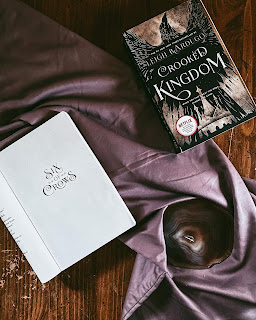When Women Were Dragons Book Review
When Women Were Dragons by Kelly Barnhill
*Warning: This review contains spoilers*
Summary & Review
Ok, so I want to start by giving Kelly Barnhill major props for actually coming up with such a unique concept. I have literally never read anything like it before, so I was pretty blown away by that.The prose is remarkably well written, and the narration of the audiobook I listened to was fantastic as well. As was the actual structure of the novel. I liked the brief “historical” interludes the separated sections of the story being told to give the reader historical and scientific commentary on “dragoning,” as if this truly were a biography (autobiography? Memoir? Case study?) written about the character of Alex to explain the story’s events. This is a kind of structuring that can’t necessarily always be pulled off well, especially in a fantasy novel. If done wrong, it can throw off the pacing of the entire book, but Barnhill handles it with finesse. I actually think that these little interludes help add to the sort of reality of this story.
I know that it’s hard to suggest that a story about women spontaneously transforming into dragons could be grounded in reality (which is my favorite type of fantasy, by the way), but somehow it is. Even though the concept of the plot is such a high fantasy idea, the execution almost feels more like magical realism.
There are moments where it becomes difficult to suspend your disbelief though, which can’t really be avoided for this plot line. I almost sometimes feel like this story would have worked better as an intermediate children’s/YA novel (where I find it easier to suspend disbelief), but then other points—when considering the thematic concerns—I thought maybe it was best that the story was adult fiction. The dragoning element made it feel like it should be geared towards a younger audience, but a lot of the more mature parts of the feminist undertones probably resonate more with older readers. It’s hard to reconcile, but it does make the story somewhat timeless.
The story does benefit from having one main character to help ground it, and I quite liked Alex’s character. The genuine emotion brought by her arc gives the story a bit of a coming-of-age aspect to it too. However, sometimes it does feel like it unsteadies the pacing. The novel itself is not exceptionally long, however there are long stretches of the story where the reader is just moving through moments of Alex’s childhood and young adult years without anything related to the specific dragoning plot can kind of feel like they’re dragging sometimes and could have been condensed just a bit.
I do feel that the book also could have benefited from a little more intersectionality for a feminist allegory novel. There’s nothing wrong with what is there already—Alex and Sonya’s relationship was a great exploration of a coming-of-age lesbian romance—but there just could have and probably should have been more. There’s only one interlude chapter that specifically references the experiences of Black women during the dragoning. I understand if Barnhill didn’t want to try and write from the perspective of a WOC’s experience with misogyny, but I think she still could have included more WOC in the book, just so that her allegory was more intersectional.
Final Thoughts
Overall, I would give this book 3 stars out of 5. It’s surprisingly well written and character driven given the seeming absurdity of its premise. It also has a unique structure. The only problems are that the pacing falters occasionally, and that for a feminist story, it’s not as intersectional as it could be.


Comments
Post a Comment